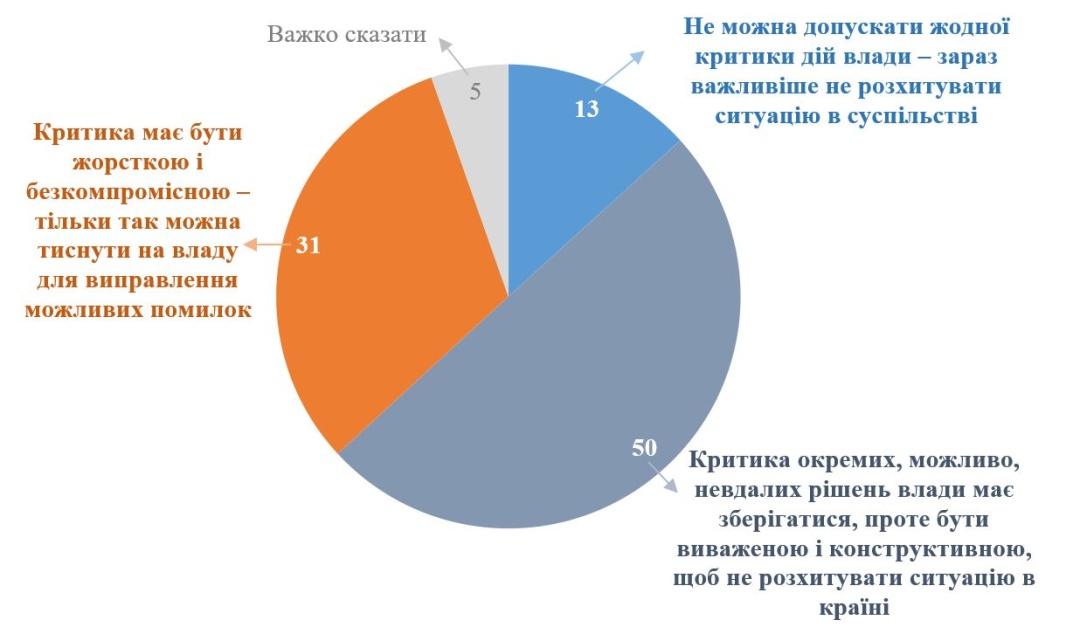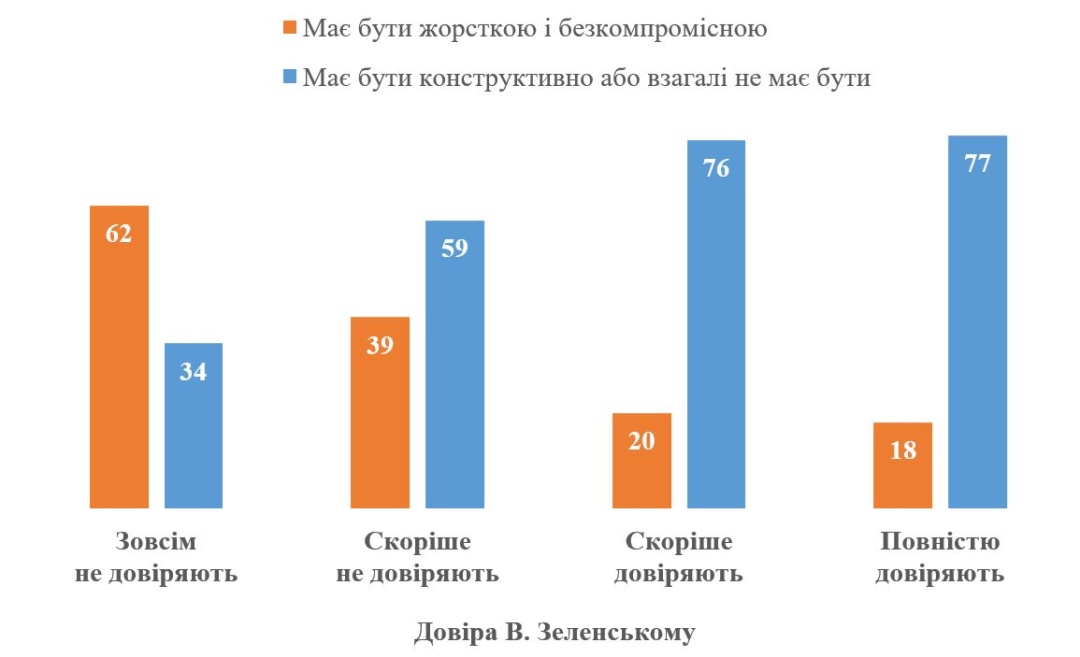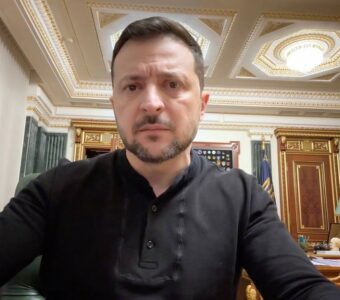Over 60% of Ukrainians believe criticism of government actions is acceptable – survey

Photo: GETTY IMAGES
63% of Ukrainians think that it is essential to be able to criticize the government's actions. However, about half of the population (50%) believes that this criticism should be constructive so as not to create instability in the country. On the other hand, nearly a third (31%) of Ukrainian citizens believe in strong and uncompromising criticism.
The Kyiv International Institute of Sociology (KIIS) reports this in its survey of May 2024.
According to sociologists, a survey conducted by KMIS in the fall of 2023 revealed that 70% of Ukrainians believed it was important to criticize the government during a full-scale war.
"The survey showed drastic changes in public opinion since the beginning of the full-scale invasion; the majority, on the contrary, advocated that it is not necessary to destabilize the situation and criticize the authorities' actions," the report says.

Близько 67% громадян України вважають, що Крим після деокупації повинен мати автономію
In May 2024, KIIS asked a similar question but with more detailed answer options.
"The majority of Ukrainians – 63% – believe that criticism of certain actions of the government should either be within constructive frameworks that would not destabilize the situation in the country (50%) or that criticism should not be allowed at all now (13%). At the same time, a third of Ukrainians ( 31%) believe that criticism should be tough and uncompromising now. The remaining 5% could not decide," KIIS noted.

Meanwhile, in the country's western, central, and southern regions, the majority of participants (62-66%) agree that criticism should be constructive or non-existent. Similarly, the situation in the eastern part of the country is nearly identical:
- 49% are in favor of more constructive criticism,
- 47% insist on harsh, uncompromising criticism.

Sociologists also asked about the level of trust in President Volodymyr Zelensky as part of the survey.
- Overall, 59% of respondents answered that they trust Zelensky, with 21% indicating complete trust and 38% stating somewhat trust.
- On the other hand, 36% of respondents reported not trusting Zelensky, with 22% indicating no trust at all and 14% stating some lack of trust.
Only among those who do not trust the President at all (22% of the entire population) do the majority (62%) believe that criticism should be harsh and uncompromising. At the same time, even among them, a third (34%) believe that criticism should be at least constructive.

"Already among those who tend not to trust the President, the situation changes to the opposite. Yes, the majority (59%) insist on constructive frameworks for criticism (or against it generally). About a third (39%) support harsh, uncompromising criticism. Meanwhile, among those who trust the President, 76-77% believe that criticism should be within a constructive framework or absent (against 18-20% who speak of harsh, uncompromising criticism)," KIIS noted.
For reference:
From May 16th to 22nd, 2024, the Kyiv International Institute of Sociology conducted an all-Ukrainian public opinion survey called "Omnibus," which included additional questions about attitudes towards government criticism. A total of 1,067 respondents from all regions of Ukraine (territory under the control of the Ukrainian government) were interviewed using the computer-assisted telephone interviews (CATI) method based on a random sample of mobile phone numbers. The survey was limited to adults (ages 18 and older) residing in the government-controlled territory of Ukraine at the time of the survey. Individuals from territories not currently controlled by the Ukrainian government were excluded, and the survey did not include citizens who had traveled abroad after February 24, 2022.
Formally, under normal circumstances, the statistical error of such a sample (with a probability of 0.95 and taking into account the design effect of 1.1) did not exceed 3.4% for indicators close to 50%; 3.0% – for indicators close to 25%; 2.1% – for indicators close to 10%; 1.5% – for indicators close to 5%.
Under conditions of war, a specific systematic deviation is added in addition to the specified formal error. In general, KIIS believes that the obtained results are still highly representative and allow for a relatively reliable analysis of the public sentiments of the population.
It should be noted that 43% of Ukrainians feel that the state of democracy in Ukraine has deteriorated in the five years of Volodymyr Zelensky's presidency. Of those, 28% believe that this is a direct result of the government's actions to limit the rights and freedoms of its citizens.
It is worth recalling that in August 2022, more than half of Ukrainians believed that the state during the war needed a strong leader more than a democratic system of governance.
In September 2023, the President of Ukraine, Volodymyr Zelensky, said that Ukraine would become different after the victory. The borders would be the same, the roaring democracy would remain, and, as always, freedom would be one of the greatest in Europe, but there would be no place for those who plundered the country.





















































